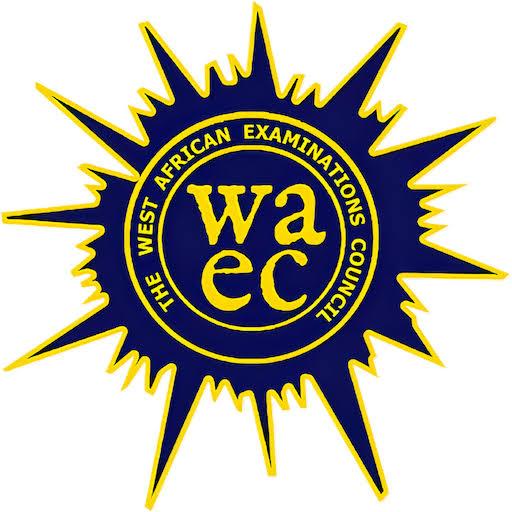Waec | Gce Civic Education Syllabus + Success Tips (2025/2026): Official Guide
Civic Education is a compulsory subject for all WAEC and GCE candidates in Nigeria. It focuses on preparing students to become responsible, patriotic citizens. To pass Civic Education easily, you need to understand the syllabus, exam structure, and important success strategies. This official guide covers the complete WAEC and GCE Civic Education syllabus, exam format, key success tips, and answers to frequently asked questions.
WAEC | GCE Civic Education Syllabus (2025/2026)
The WAEC and GCE Civic Education syllabus focuses on the following themes:
1. Citizenship and National Values
| Topics | What to Focus On |
|---|---|
| Meaning of Citizenship | Types of citizens, ways of acquiring citizenship |
| National Values | Integrity, discipline, contentment, patriotism |
| Duties and Obligations of Citizens | Civic responsibilities and national loyalty |
| Symbols of National Identity | Flag, anthem, coat of arms, pledge |
2. Human Rights
| Topics | What to Focus On |
|---|---|
| Meaning and Types of Human Rights | Civil, political, economic, social rights |
| Limitations to Human Rights | Reasons why rights can be limited |
| Protection of Human Rights | Organizations and legal provisions |
3. Government System and Democracy
| Topics | What to Focus On |
|---|---|
| Meaning and Types of Government | Democracy, monarchy, military rule |
| Features of Democracy | Rule of law, free press, free elections |
| Pillars of Democracy | The arms of government, independent judiciary |
| Electoral Process | Voter registration, election procedures, INEC |
| Political Apathy | Causes and consequences |
4. Law and Order
| Topics | What to Focus On |
|---|---|
| Importance of Law in Society | Functions and roles of law enforcement agencies |
| Consequences of Lawlessness | Breakdown of law and order, anarchy |
| Drug Abuse and Trafficking | Meaning, dangers, preventive measures |
5. National Development
| Topics | What to Focus On |
|---|---|
| Values that Promote Development | Honesty, hard work, self-reliance |
| Role of Entrepreneurship | Types of entrepreneurs, contributions to economy |
| Importance of Popular Participation | Benefits of citizen involvement in governance |
6. Contemporary Social Problems
| Topics | What to Focus On |
|---|---|
| Cultism, Examination Malpractice | Causes, dangers, and preventive measures |
| Human Trafficking | Causes, consequences, ways to curb it |
| Environmental Issues | Deforestation, erosion, climate change |
WAEC | GCE Civic Education Exam Format
| Paper | Content | Duration |
|---|---|---|
| Paper 1 | 50 Multiple Choice Questions | 1 Hour 30 Mins |
| Paper 2 | 5 Essay/Structured Questions (Answer All) | 2 Hours |
Top Success Tips for WAEC | GCE Civic Education Exam
| Success Tip | Why It’s Important |
|---|---|
| Study Definitions Thoroughly | Objective questions focus on key definitions |
| Memorize National Symbols | These are commonly asked in both papers |
| Practice Past Questions | Helps identify repeated topics and exam pattern |
| Understand Human Rights Concepts | Often tested in both objective and theory papers |
| Write Points Clearly in Essays | Use headings and paragraphs for better scoring |
| Revise Electoral Processes | Exam questions often focus on democracy topics |
| Focus on Drug Abuse and Law Topics | Frequently asked in essay sections |
| Study Real-Life Examples | Enhances essay answers with practical scenarios |
| Manage Exam Time Properly | Don’t spend too much time on a single question |
| Use WAEC-Recommended Textbooks | Such as Civic Education for Senior Secondary Schools |
FAQs About WAEC | GCE Civic Education Exam
1. How many papers are in WAEC Civic Education?
Two: Paper 1 (Objectives) and Paper 2 (Theory/Essay).
2. Is Civic Education compulsory in WAEC?
Yes, it is compulsory for all senior secondary school students in Nigeria.
3. Are definitions enough to pass Civic Education?
No. Definitions help in Paper 1, but you need real-life examples and clear explanations for Paper 2 essays.
4. What textbook is recommended?
Civic Education for Senior Secondary Schools and WAEC Past Questions.
5. How can I score A1 in Civic Education?
Study the syllabus fully, master definitions and national topics, practice past questions, and structure essay answers clearly.
Conclusion
Civic Education teaches you your rights, responsibilities, and how to contribute positively to national development. To pass WAEC or GCE Civic Education, focus on understanding key national topics, practice past questions regularly, and learn how to express your answers clearly in both objective and theory exams.
With serious study and good preparation, you can confidently aim for an A1 in Civic Education.



